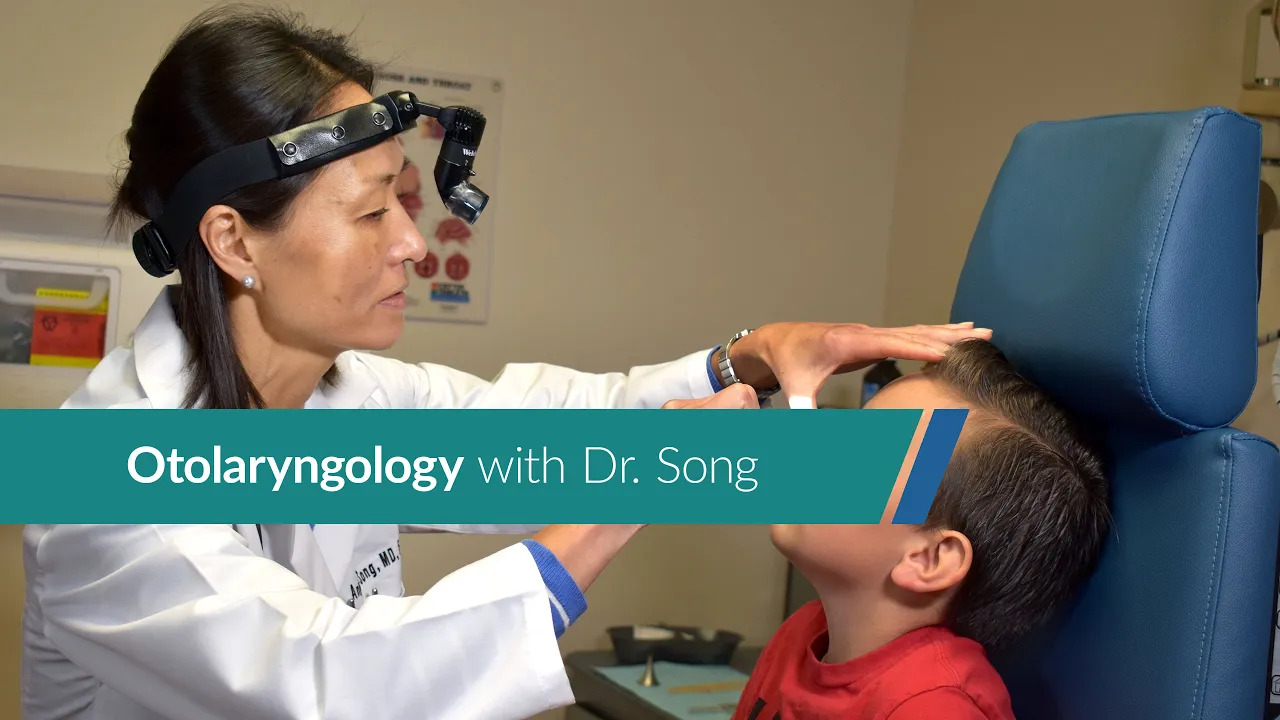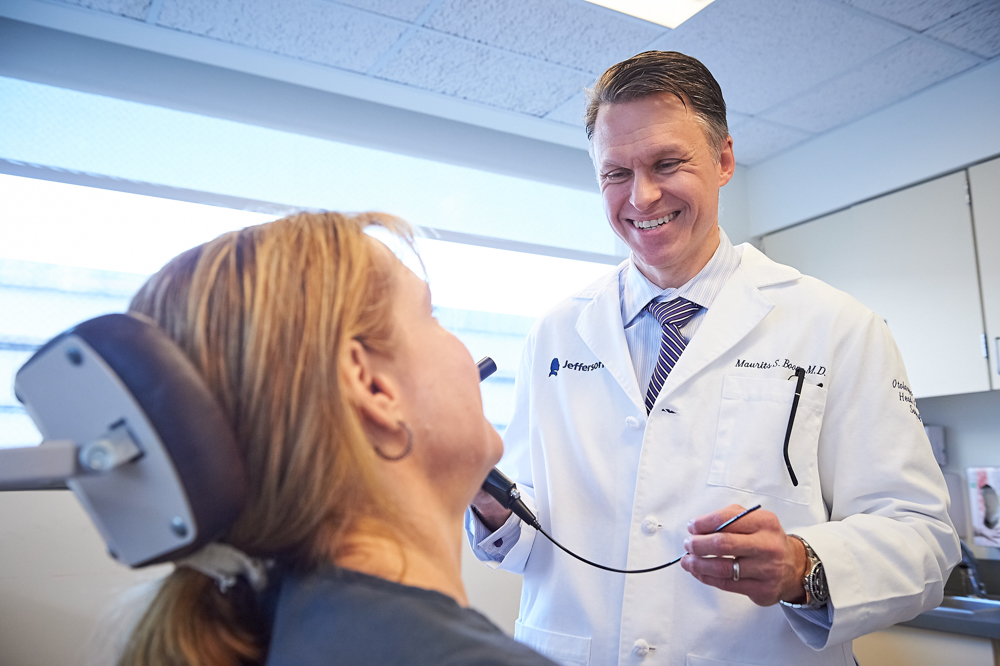Protecting Your Voice: How a Voice Specialist Can Improve Dysfunction
Protecting Your Voice: How a Voice Specialist Can Improve Dysfunction
Blog Article
Discovering the Field of Otolaryngology: What to Anticipate When You Get In Touch With an ENT
Otolaryngology, typically described as ENT, encompasses the medical diagnosis and therapy of nose, throat, and ear conditions. For those experiencing related problems, consulting an ENT specialist can offer clarity and alleviation. Comprehending what to expect during such consultations is vital for reliable interaction and care. This review will detail vital facets of the ENT experience, including common reasons for check outs and the processes involved in diagnosis and treatment.

Recognizing Otolaryngology: An Introduction
Otolaryngology, commonly described as ENT (Throat, nose, and ear) medicine, is a specific branch of medicine that concentrates on the diagnosis and therapy of problems affecting these critical areas of the body. This area incorporates a large variety of problems, including those pertaining to hearing, balance, respiratory system function, and speech. Otolaryngologists are educated to manage both medical and medical therapies, utilizing advanced strategies and technologies. Their knowledge prolongs past conventional ailments, dealing with concerns such as allergic reactions, sinus infections, and hearing loss. In addition, they play an important function in the monitoring of head and neck cancers cells, providing comprehensive care tailored to specific client needs. Generally, otolaryngology continues to be important for keeping health and lifestyle in damaged individuals.
Usual Reasons to See an ENT Expert
Many people look for the experience of an ENT expert for a selection of reasons, reflecting the diverse nature of problems that impact the nose, throat, and ear. Typical issues include persistent sinusitis, which commonly causes relentless nasal blockage and face discomfort. Allergies and their associated signs, such as itching and sneezing, likewise prompt visits to these professionals (ENT Clinic). Hearing loss, whether abrupt or gradual, is one more considerable reason for appointment. Additionally, individuals may seek evaluation for throat problems, consisting of relentless hoarseness or ingesting troubles. Sleep apnea, defined by interrupted breathing during sleep, is frequently resolved by ENT specialists as well. Each of these conditions highlights the significance of specialized care in taking care of intricate ENT-related health concerns
Planning for Your ENT Consultation
When planning for an ENT consultation, it is important to collect relevant details and take into consideration any kind of details problems. Individuals should put together a detailed case history, including previous ear, nose, or throat problems, surgical treatments, and present medications. Documenting symptoms-- such as period, severity, and regularity-- can provide beneficial insights for the ENT specialist. Additionally, individuals ought to prepare a list of concerns they desire to ask, guaranteeing that all concerns are attended to throughout the visit. Bringing along any type of appropriate clinical records or test outcomes can better aid the ENT in recognizing the client's problem. People need to confirm their appointment information, including place, time, and day, to reduce any final confusion. Correct preparation can enhance the efficiency of the examination and cause better outcomes.
What to Expect During the Appointment
As the assessment starts, the patient can expect to participate in an extensive discussion with the ENT expert regarding their symptoms and medical history. The specialist will certainly ask about the duration, frequency, and seriousness of signs such as hearing loss, nasal congestion, or aching throat. Furthermore, the client's previous medical problems, medications, and any type of relevant family members background will be examined, aiding the expert in creating a complete understanding of the patient's health. The ENT may likewise inquire about way of life variables, such as direct exposure to allergens or toxic irritants. This open discussion establishes a structure for the appointment, making sure that the person's issues are dealt with and setting the view it phase for any kind of needed assessments or suggestions for treatment.
Analysis Tests and Procedures in Otolaryngology
A series of analysis tests and treatments are essential in otolaryngology to precisely evaluate and detect conditions impacting the throat, ear, and nose. Typical examinations consist of audiometry, which determines hearing feature, and tympanometry, evaluating center ear pressure. Nasal endoscopy allows visualization of the nasal flows and sinuses, while laryngoscopy takes a look at the throat and vocal cords. Imaging techniques, such as CT scans and MRIs, provide thorough views of head and neck structures. Allergy screening may likewise be conducted to determine triggers for sinus or respiratory system concerns. These diagnostic devices enable ENT specialists to establish a detailed understanding of individuals' problems, guaranteeing tailored and efficient monitoring plans. Correct medical diagnosis is important for effective treatment outcomes in otolaryngology.
Treatment Options Offered by ENT Specialists
ENT experts provide a variety of therapy options customized to address particular problems impacting the throat, ear, and nose. These therapies range from traditional click for info strategies, such as medicine and way of living adjustments, to even more invasive treatments. As an example, allergies might be managed with antihistamines or immunotherapy, while persistent sinus problems may need nasal corticosteroids or sinus surgical procedure. For hearing loss, ENT experts usually recommend hearing aids or medical treatments like cochlear implants. In cases of throat disorders, alternatives can consist of speech therapy or surgical treatments to get rid of obstructions. In addition, they might give guidance for managing sleep apnea, including making use of CPAP devices or surgical interventions. On the whole, the goal is to boost clients' lifestyle through customized treatment and effective therapy techniques.
When to Look For Follow-Up Care With an ENT
When to seek follow-up treatment with an ENT specialist is important for taking care of continuous signs or difficulties connected to nose, ear, and throat conditions, acknowledging. Patients ought to consider arranging a follow-up appointment if signs linger regardless of preliminary therapy, such as chronic ear pain, nasal congestion, or throat discomfort. Changes in hearing, equilibrium problems, or unusual nasal discharge might likewise necessitate additional evaluation. Additionally, if a person experiences adverse effects from suggested medicines or has undertaken a medical here are the findings procedure, follow-up care is very important to check recuperation and deal with any kind of issues. Prompt assessments can guarantee efficient monitoring of conditions, stop prospective issues, and provide comfort regarding one's wellness. Seeking follow-up treatment advertises positive health and wellness monitoring in otolaryngology.
Often Asked Questions

What Certifications Should I Look for in an ENT Expert?
When seeking an ENT professional, one must try to find board qualification, appropriate experience, and strong client testimonials. Furthermore, effective interaction abilities and a thoughtful technique can significantly improve the general therapy experience.
Just how Do I Pick the Right ENT for My Demands?
Picking the appropriate ENT professional involves evaluating their credentials, experience, and patient evaluations (Otolaryngology). It is vital to consider their interaction design and technique to therapy, ensuring they align with the person's certain health and wellness needs and choices
Exist Any Type Of Dangers Connected With ENT Procedures?
The risks linked with ENT treatments might consist of infection, bleeding, anesthetic complications, and prospective damages to bordering frameworks. Patients ought to review these risks with their medical professional to recognize specific issues and assurance informed choices.
Just How Can I Manage Anxiety Before My ENT Consultation?
To manage anxiety prior to a consultation, people can exercise deep breathing workouts, envision positive end results, prepare inquiries in advance, and seek assistance from close friends or household, fostering a sense of peace of mind and peace.
What Should I Do if I Experience Adverse Effects From Treatment?
If adverse effects from treatment take place, the individual needs to without delay report them to their doctor. Adjustments to therapy or extra interventions might be required to ensure safety and security and performance in handling their condition - Sinus. As the assessment begins, the patient can anticipate to engage in a comprehensive conversation with the ENT professional about their signs and clinical history. These diagnostic tools enable ENT experts to develop a complete understanding of clients' conditions, ensuring tailored and reliable management strategies. ENT experts supply a range of therapy alternatives customized to deal with particular problems impacting the throat, nose, and ear. When looking for an ENT specialist, one need to look for board qualification, pertinent experience, and strong client testimonials. Selecting the ideal ENT specialist includes reviewing their credentials, experience, and client testimonials
Report this page